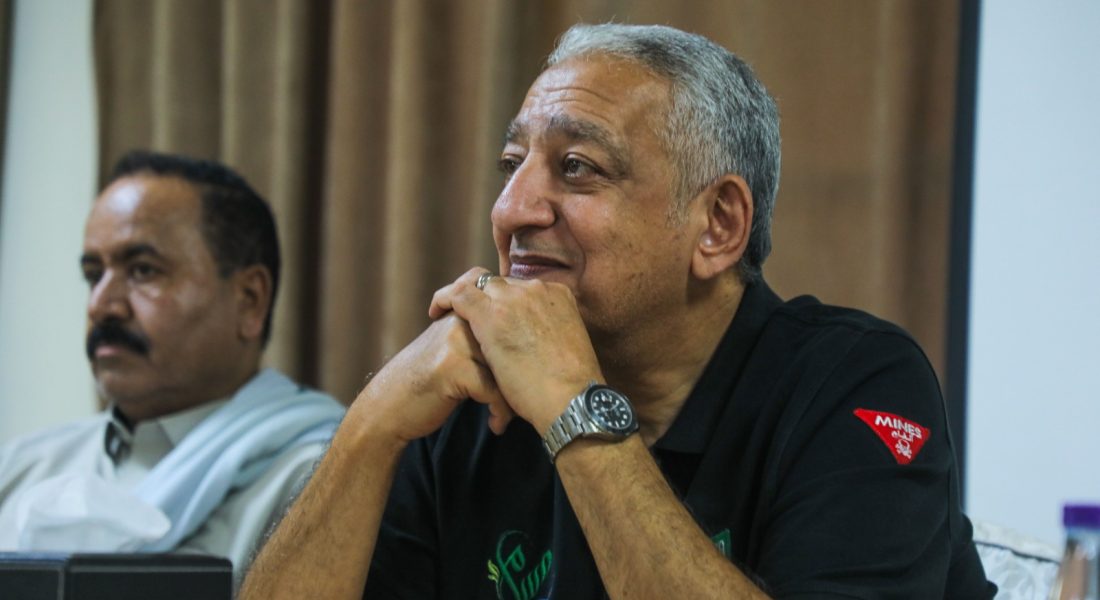Ousama Algosaibi, Managing Director of the Masam Landmine Clearance Project – Yemen has announced today (Sunday 15 June) that the project’s demining teams have successfully removed 500,000 landmines, explosive devices, and unexploded ordnance from liberated Yemeni land.
Algosaibi stated that this significant figure reflects the cumulative achievements of the project since its launch in mid-2018 up to 13 June 2025. He highlighted the scale of the humanitarian disaster faced by the Yemeni people, caused by the deliberate actions of the Houthi militias, who have indiscriminately and extensively planted explosive devices across Yemen, threatening agriculture, livelihoods, and civilian safety.
In his statement, Algosaibi provided a detailed breakdown of the clearance achievements:
- 6,802 anti-personnel mines
- 146,655 anti-tank mines
- 8,240 explosive devices
- 338,303 unexploded ordnance
Additionally, the teams have cleared 67,585,167 square metres of land, making these areas safe once again for civilian use.
While the achievements of Project Masam are credited to the Kingdom of Saudi Arabia – which has implemented the initiative in line with international mine action standards – they also underscore the alarming level of danger that continues to threaten the Yemeni civilians in their daily life, driven by the Houthis’ deliberate and indiscriminate use of landmines to harm civilians anywhere and by any means.
Regarding estimates of the number of mines planted by the Houthi militias in Yemen, the managing director emphasised that providing an accurate figure is extremely difficult. He explained that the group’s mine-laying operations have not ceased for a single day – even during truces and temporary ceasefires. He also pointed out that the militias – a group designated as terrorists and condemned for terrorist-like actions by the United States, Canada, Australia, the United Arab Emirates, Saudi Arabia, Israel, and the United Nations – continue to develop and modify mines and explosive devices in pursuit of their criminal objectives against civilians.
“Even so, the preliminary estimate of two million mines is, in itself, a catastrophe by any standard,” said Algosaibi. “This figure reflects the Houthis’ widespread and indiscriminate planting of mines in civilian areas -often far away from active conflict zones”.
“Schools, farms, and the roads that connect them are not military targets,” he continued. “When we see the victims – children, women, and the elderly among the dead and injured – it becomes painfully clear that these militias are deliberately aiming to inflict maximum harm on civilians, spread fear, and force families to flee by targeting their livelihoods”.
Algosaibi emphasised the unwavering commitment of all team members to continue their mission of protecting the Yemeni people from the dangers of landmines, explosive devices, and unexploded ordnance. “Reaching this milestone serves as the strongest motivation for us to carry on with this noble humanitarian work,” he said.
In his closing comments, Algosaibi expressed his sincere gratitude to the government of the Custodian of the Two Holy Mosques and His Royal Highness the Crown Prince for their continued support to the brotherly people of Yemen through Project Masam and other initiatives under the umbrella of the King Salman Humanitarian Aid and Relief Centre (KSRelief).
He also extended his deep appreciation to the Yemeni leadership, led by His Excellency President Dr. Rashad Mohammed Al-Alimi, Chairman of the Presidential Leadership Council, His Excellency Prime Minister Salem Saleh bin Breik, and all members of the Yemeni government, for their ongoing support and cooperation.
He also praised the tireless efforts of the project’s local partner, the National Mine Action Programme, led by Brigadier General Amin Aqili, and the Executive Centre for Mine Action, led by Brigadier General Qaid Haitham Halboub.
Algosaibi acknowledged the strong cooperation Project Masam continues to receive from the Yemeni people and all governmental and non-governmental institutions in brotherly Yemen. He further expressed his heartfelt appreciation to all members of the field teams, whose dedication and sacrifices were instrumental in achieving this milestone.

